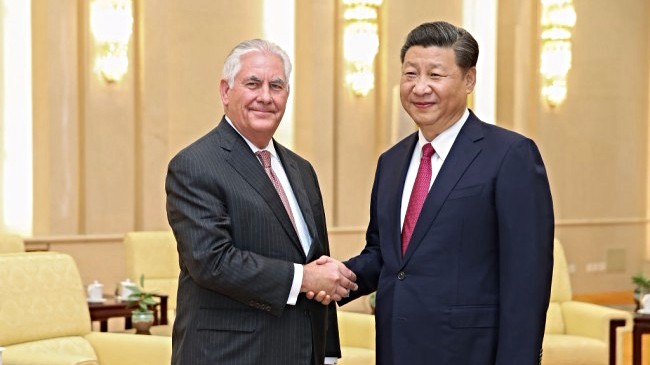
Between the recent flybys performed by American bombers over its waters, claims of nonexistent declarations of war, and China’s looming ecominic blockade, North Korea is in a tight spot when it comes to international relations. Then again, its leader’s frequent back-and-forth with President Donald Trump — who isn’t the most stable guy in his own right — haven’t made things any better for the small dictatorship. According to State Secretary Rex Tillerson, however, not all is completely lost when it comes to potentially improving diplomatic relations with Pyongyang.
Following a meeting with President Xi Jinping and other top Chinese officials on Saturday, Tillerson spoke with reporters at the U.S. ambassador’s residence. “We are probing, so stay tuned,” he said of attempts to open a dialogue with North Korean leader Kim Jong-un. “We ask, ‘Would you like to talk?’ We have lines of communications to Pyongyang — we’re not in a dark situation, a blackout. We have a couple, three channels open to Pyongyang.” Tillerson wouldn’t provide too much detail, including whether or not North Korea was responding to U.S. requests to speak. Though he did reveal the lines of communications were direct:
“We can talk to them,” Mr. Tillerson said. “We do talk to them.” When asked whether those channels ran through China, he shook his head. “Directly,” he said. “We have our own channels.”
Considering the intense relations between the U.S. and North Korea, Tillerson insisted the best current course of action is to simmer down. “The whole situation is a bit overheated right now,” he said. “If North Korea would stop firing its missiles, that would calm things down a lot.” Even so, the secretary warned the White House’s approach to Pyongyang would be nothing like its stance on Iran, with whom the Obama administration secured a hotly contested nuclear deal. “We are not going to put together a nuclear deal in North Korea that is as flimsy as the one in Iran,” he said.
(Via New York Times)
